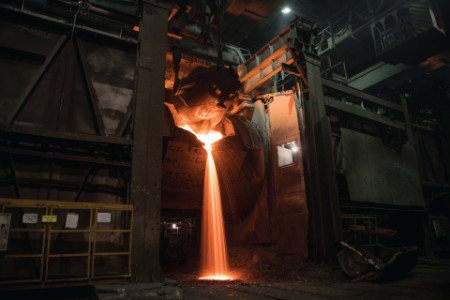Of the new mining investments, USD40 billion is expected to be allocated to mining projects in Peru, with copper projects accounting for 73% of the total. Gold projects represent 13% (USD7 billion) and iron ore projects 9% (USD5 billion).
Economics Peru
Peru is one of the most stable economies in Latin America. Peru's economy reflects its varied geography, an arid coastal region, the Andes further inland, and tropical lands bordering Colombia and Brazil. Abundant mineral resources are found mainly in the mountainous areas, and Peru's coastal waters provide excellent fishing grounds.
In recent years, Peru has achieved significant advances in social and development indicators as well as in macroeconomic performance, with very dynamic GDP growth rates, reduction of external debt, a stable exchange rate and low inflation. Peru's rapid expansion has helped to reduce the national poverty rate from 58.7% in 2004, to 29.0% of its total population in 2023. Extreme poverty declined from 17.1% to 5.7% over the same period. It is classified as an upper middle-income economy by the World Bank, though GDP per capita is still below the Latin American average.
The country has had continuous economic stability since the early 1990s. While Peru suffered its worst GDP contraction in three decades in 2020 (-10.9%) due to the outbreak of the COVID-19 pandemic, economic activity has rebounded at a good pace. The Peruvian economy has fully recovered to pre-pandemic levels.
In 2021, GDP registered a growth of 13.4%, making Peru one of the economies with the highest growth in the region. The recovery of economic activity continued in 2022, with an expansion of 2.7%, supported by higher exports and economic policies that remained expansive. While Peru’s economy contracted by 0.6% in 2023, it is gradually recovering and is expected to grow at a rate of close to 3.1% in 2024.
Mining Investments
In 2023, Peru’s copper output reached a record high driven largely by the ramp up of Anglo American’s Quellaveco mine which came online in late 2022. The open pit operation, located in the south of Peru, accounted for more than 10% of domestic copper production.
According to preliminary information published by the Ministry of Energy and Mines, the country extracted nearly 2.8 million metric tonnes of copper, a 13% increase with regards to the previous year. This still places the country as the world’s second largest copper producer. Cerro Verde (operated by FreeportMcMoRan), was the top producer of copper in Peru, followed by Antamina (owned by BHP, Glencore, Mitsubishi and Teck Resources) and Southern Copper (owned by Grupo Mexico). With the spectacular increase of 2023, Peru’s copper production continued to close the gap with Chile, the world’s largest producer of the red metal.
Mining projects in Peru
In 2024, copper production is anticipated to rise by 4%, reaching close to 3 million metric tonnes, according to estimates from Peru’s National Society of Mining, Petroleum and Energy (SNMPE). Importance of copper is evident given its demand from various sectors. It is an extensively used material in construction, telecommunication, automobile, and power sectors. Copper is also one of the modern world’s most needed energy transition metals. It is the cornerstone for all electricity related technologies, from solar panels to electric vehicles and consumer electronics.


